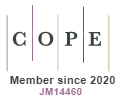Portuguese language teaching with mediation of digital technologies in pandemic times
DOI:
https://doi.org/10.5585/dialogia.n36.18336Keywords:
Education, COVID-19, Digital Technologies, Emergency Remote EducationAbstract
This article presents an exploratory qualitative research whose objective is to show educational practices using Digital Technologies (DTs), seeking to understand the potential and fragilities of their use in Emergency Remote Education. For this, an experience report on the use of digital tools in the discipline of Portuguese Language is presented for three classes of 8th grade, during two quarter of Elementary School of a private school, located in the city of Caxias do Sul - RS, during a period of the COVID-19 pandemic. In this horizon, four digital tools were used: (i) Publisher; (ii) Meme Generator - imgflip; (iii) Mentimeter and (iv) Quizlet. The study revealed that DTs provide significant changes in the attitude of the teacher and the students about the processes of learning and teaching in the ERE as knowledge mediator, allowing to strengths and weaknesses, with regard to the use of technological tools adopted.
Downloads
References
BACICH L.; MORAN J. Metodologias Ativas para uma Educação Inovadora: Uma Abordagem Teórico-Prática. Porto Alegre: Penso, 2018. e-Pub.
BEHAR, P. A.. O Ensino Remoto Emergencial e a Educação a Distância. Jornal da Universidade (UFRGS). Disponível em: https://www.ufrgs.br/jornal/o-ensino-remoto-emergencial-e-a-educacao-a-distancia/. Acesso em: set 2020.
BRASIL. Base Nacional Comum Curricular: Educação Infantil e Ensino Fundamental. Brasília: MEC/Secretaria de Educação Básica, 2017a.
BRASIL. Lei de Diretrizes e Bases da Educação Nacional, LDB. Lei 9394/1996. 2016b. Disponível em:> axias.rs.gov.br>. Acesso em set. 2020.
CASTAMAN, A. S.; RODRIGUES, R. A. Educação a Distância na crise COVID - 19: um relato de experiência. Research, Society and Development, v. 9, n. 6, e180963699, 2020.
DANTAS, W.; SANTOS, E. C.. As ideias linguísticas do círculo de Bakhtin na Base Nacional Comum Curricular (BNCC). Macabéa – Revista Eletrônica do Netlli, v.9, n. 3, 2020.
FILHO, A. P.. Educação a distância: uma abordagem metodológica e didática a partir dos ambientes virtuais. Educ. rev., v. 27, n.2. Belo Horizonte, 2011.
FORTUNATO, I.. O relato de experiência como método de pesquisa educacional. In: Ivan Fortunato; Alexandre Shigunov Neto. (Org.). Método(s) de Pesquisa em Educação. Edições Hipótese, São Paulo, v. 1, p. 37-50, 2018.
GONÇALVES, V.; MOREIRA, A.; CORREA, Y.. Educação e tecnologias na sociedade digita,. Portugal, Whitebooks. 2019.
HONORATO, H. G.; MARCELINO, A. C. K.. A arte de ensinar e a pandemia covid-19: a visão dos professores. rede – Revista Diálogos em Educação, v. 1, n. 1, janeiro-junho, 2020.
MATOS, Eduardo. Um mês depois, cerca de 40% dos alunos da rede estadual seguem fora do sistema de aulas online. Disponível em: < https://cutt.ly/kf3IspB> Acesso em: jul. 2020.
MOREIRA, J. A.; SCHLEMMER, E. Por um novo conceito e paradigma de educação digital onlife. Revista UFG, v. 20, 2020.
NÓVOA. A. Formação de professores em tempo de pandemia. Youtube. Jun. 2020. Disponível em: https://www.youtube.com/watch?v=ef3YQcbERiM. Acesso em: jun. 2020.
PEDRÓ, F. A tecnologia e a transformação da educação. Documento básico. Tradução: Maria Alicia Manzone Rossi. Fundação Santillana. 2016.
SAMPIERI, R. H.; COLLADO, C. F.; LUCIO, M. B.. Metodologia de pesquisa. 5. ed. Porto Alegre: Penso, 2013.
SANTANA, C. L. S.; SALES, K. M. B.. Aula em casa: educação, tecnologias digitais e pandemia covid-19. Revista Interfaces Científicas. Aracaju, v.10, n.1, p. 75 – 92, 2020.
UNESCO. Consequências adversas do fechamento das escolas. 2020. Disponível em: <https://pt.unesco.org/covid19/educationresponse/consequences>. Acesso em ago. 2020.
VYGOTSKY, L.S.. Pensamento e Linguagem. São Paulo: Martins Fontes, 1993.
WILLIAMSON, B.; EYNON, R.; POTTER, J. Pandemic politics, pedagogies and practices: digital technologies and distance education during the coronavirus emergency. Learning, Media and Technology, v. 45, n. 2, p. 107–114, 2020.
Downloads
Published
How to Cite
Issue
Section
License
Copyright (c) 2020 Dialogia

This work is licensed under a Creative Commons Attribution-NonCommercial-ShareAlike 4.0 International License.
- Abstract 4543
- PDF (Português (Brasil)) 3335






